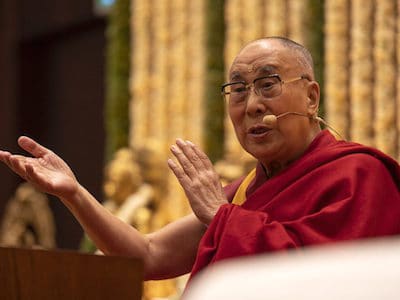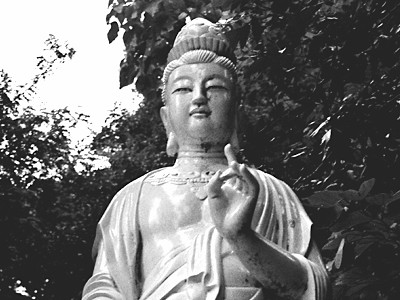emptiness
Teachings on the core of Buddhist philosophy: that persons and phenomena are ultimately empty of inherent existence because they are dependent arisings. This is the most powerful antidote that eliminates the ignorance and afflictions that give rise to suffering.
Latest Posts
View all posts in Venerable Thubten Chodron's teaching archive.
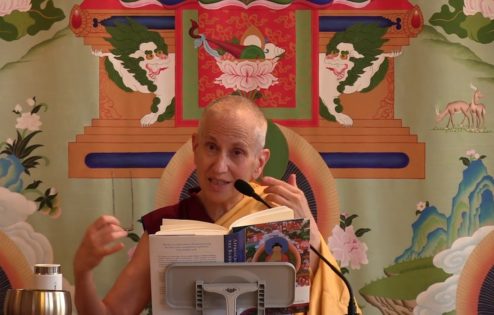
The possibility of ending duhkha
Covering the sections "Dependent Arising and the Three Jewels" and "The Possibility of Ending Duhkha."
View Post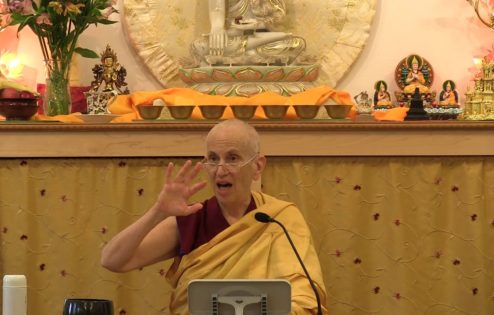
The four truths of the aryas
Covering the sections "The Four Truths of the Aryas" and "Dependent Arising and Emptiness."
View Post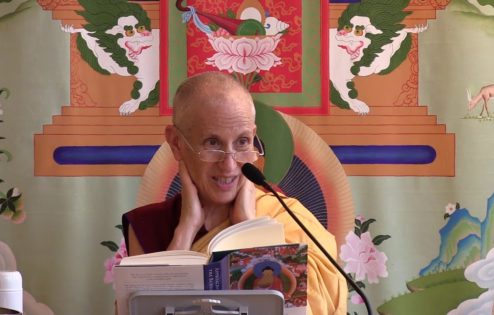
Body, mind, rebirth and self
Continuing Chapter 2 and covering the section “Body, Mind, Rebirth and Self.”
View Post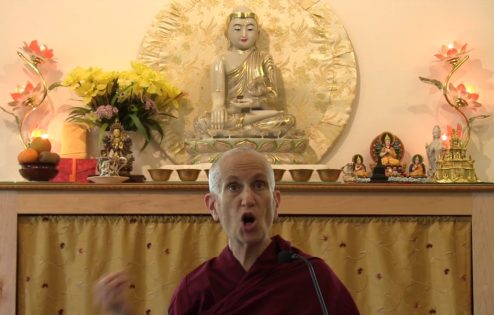
Who are you judging?
Working on our anger and our judgmental minds in order to be able to see…
View Post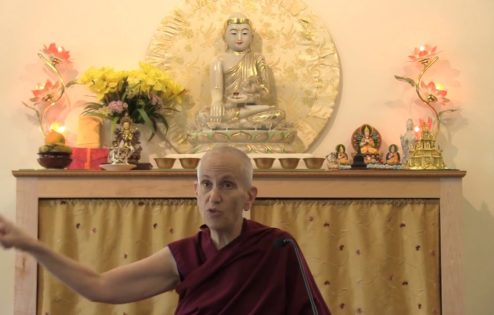
More precious than a wish-fulfilling jewel
Beginning a commentary to Geshe Langri Tangpa's “Eight Verses of Thought Transformation,” the importance of…
View Post
Prayer to be reborn in Amitabha’s pure land: v...
Things and persons exist dependently but ignorance grasps them to exist independently. Overcoming obstacles to…
View Post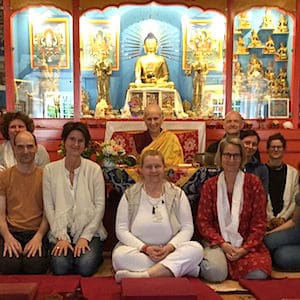
“Approaching the Buddhist Path”: Designa...
Mere designation by term and concept is the subtlest meaning of dependent arising. How Dharma…
View Post
“Approaching the Buddhist Path”: Depende...
What it means to repay the kindness of others. How phenomena are empty and exist…
View Post
“Approaching the Buddhist Path”: The nat...
The conventional and ultimate nature of the mind. How phenomena exist in relationship to the…
View Post